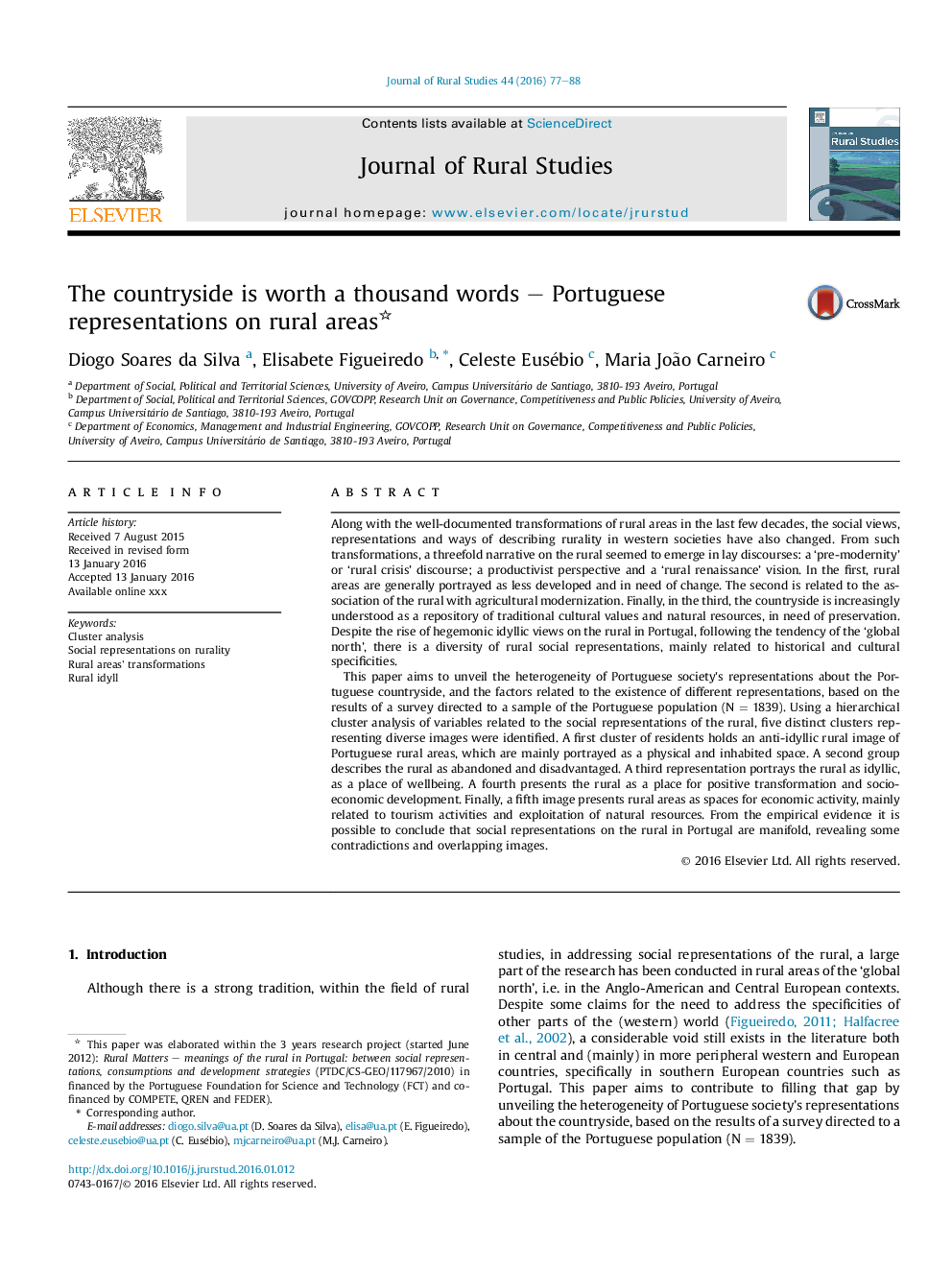| Article ID | Journal | Published Year | Pages | File Type |
|---|---|---|---|---|
| 6545450 | Journal of Rural Studies | 2016 | 12 Pages |
Abstract
This paper aims to unveil the heterogeneity of Portuguese society's representations about the Portuguese countryside, and the factors related to the existence of different representations, based on the results of a survey directed to a sample of the Portuguese population (NÂ =Â 1839). Using a hierarchical cluster analysis of variables related to the social representations of the rural, five distinct clusters representing diverse images were identified. A first cluster of residents holds an anti-idyllic rural image of Portuguese rural areas, which are mainly portrayed as a physical and inhabited space. A second group describes the rural as abandoned and disadvantaged. A third representation portrays the rural as idyllic, as a place of wellbeing. A fourth presents the rural as a place for positive transformation and socioeconomic development. Finally, a fifth image presents rural areas as spaces for economic activity, mainly related to tourism activities and exploitation of natural resources. From the empirical evidence it is possible to conclude that social representations on the rural in Portugal are manifold, revealing some contradictions and overlapping images.
Keywords
Related Topics
Life Sciences
Agricultural and Biological Sciences
Forestry
Authors
Diogo Soares da Silva, Elisabete Figueiredo, Celeste Eusébio, Maria João Carneiro,
